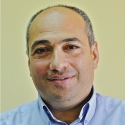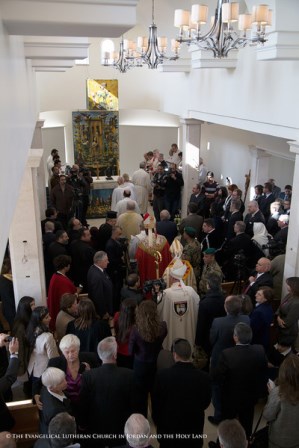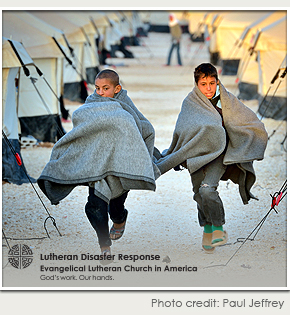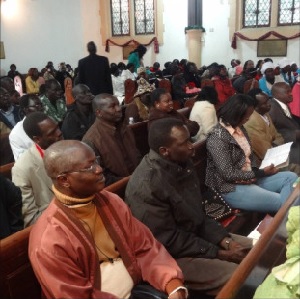Below is the National Interreligious Leadership Initiative for Peace in the Middle East statement welcoming the ceasefire in Israel and Gaza, with endorsements by thirty-three national Jewish, Christian, and Muslim leaders.
August 14, 2014
Jewish, Christian and Muslim Religious Leaders Welcome Ceasefire;
Call Urgently for Renewed Negotiations for a Two-State Peace Agreement
As leaders of American Jewish, Christian, and Muslim national religious organizations, united in the National Interreligious Leadership Initiative for Peace in the Middle East (NILI), we welcome the ceasefire agreement of Israel and Hamas, and the negotiations to make it permanent. We were appalled by the kidnappings and murders of Israeli and Palestinian teenagers. We believe the loss of even one human life is a tragedy that grieves God. In the recent weeks of war between Hamas and Israel, we mourn the innocent civilians killed. We offer our prayers as well for the wounded and for the families of all the victims of violence.
This tragic escalation of violence demonstrates once again that there is no such thing as a stable status-quo in the Israeli-Palestinian conflict. Ideas being promoted in some circles for returning to the previous status quo or managing the conflict are dangerous. Acknowledging the recent failed negotiations, we call on Israeli and Palestinian political leaders to renew negotiations to achieve a two-state peace agreement, the only realistic resolution of the conflict in which both people can live in peace, security, and mutual recognition. The crucial choice leaders on both sides face now is between negotiating a two-state peace agreement with a new sense of urgency or condemning Palestinian and Israeli children and youth to continued conflict — more violence, more suffering, and more deaths.
We strongly supported Secretary of State Kerry’s efforts to achieve a negotiated peace agreement, and urge the United States to renew efforts to reach a two-state agreement as soon as possible. Recalling President Obama’s words in Jerusalem, “Peace is necessary…peace is also just…and peace is possible,” we believe the outline of a possible two-state agreement is widely known, including ideas drawn from previous official and informal negotiations for fair, realistic compromises. While none of the previous plans present a complete outline, the Taba Agreement (2000), the Arab Peace Initiative (2002), People’s Voice Initiative (2003), Geneva Accord (2003), and the (unofficial) Israeli Peace Initiative (2011) are sources for principled and practical ideas to help resolve all the issues, including borders and security, settlements, refugees and Jerusalem.
It is more urgent than ever that the United States and the international community press for a two-state peace agreement. While appreciating that maintaining a sustainable ceasefire is now the priority, we would welcome an early opportunity to meet with Secretary of State Kerry to discuss how we can assist with renewed U.S. efforts to achieve a negotiated two-state peace agreement. We pledge to mobilize active public support from members of synagogues, churches and mosques across the country for active, fair and determined U.S. leadership for peace.
List of Endorsers follows.
NILI Statement Welcoming the Ceasefire
In Israel and Gaza – August 2014
List of Endorsers
Christian Leaders:
Bishop Richard E. Pates, Chairman, USCCB Committee on International Justice and Peace
Theodore Cardinal McCarrick, Archbishop Emeritus of Washington
Archbishop Vicken Aykasian, Director, Ecumenical Affairs, Armenian Orthodox Church in America
Archimandrite Nathanael Symeonides, Ecumenical Officer, Greek Orthodox Archdiocese of America
Jim Winkler, President/General Secretary, National Council of Churches of Christ USA
The Rev. Elizabeth A. Eaton, Presiding Bishop, Evangelical Lutheran Church in America
Bishop Warner H. Brown Jr., President, Council of Bishops, United Methodist Church
Most Rev. Dr. Katharine Jefferts Schori, Presiding Bishop and Primate, The Episcopal Church
Reverend Gradye Parsons, Stated Clerk, Presbyterian Church (USA)
Reverend Geoffrey Black, General Minister & President, United Church of Christ
Reverend Dr. Sharon Watkins, General Minister, President, Christian Churches (Disciples of Christ)
Reverend Leighton Ford, President, Leighton Ford Ministries, Board Member, World Vision US
David Neff, former Editorial Vice-President, Christianity Today
John M. Buchanan, Editor and Publisher, Christian Century
Jewish Leaders:
Rabbi Rick Jacobs, President, Union of Reform Judaism
Rabbi Rick Block, President, Central Conference of American Rabbis
Rabbi Steven A. Fox, Chief Executive Officer, Central Conference of American Rabbis
Rabbi David Saperstein, Director, Religious Action Center of Reform Judaism
Rabbi Elliot Dorff, Ph.D. Rector and Distinguished Professor of Philosophy, American Jewish University
Rabbi Burt Visotzky, Jewish Theological Seminary
Rabbi Jason Klein, President, Reconstructionist Rabbinical Association
Rabbi Deborah Waxman, President, Reconstructionist Rabbinical College
Rabbi Amy Small, Past President, Reconstructionist Rabbinical Association
Rabbi Ellen Weinberg Dreyfus, Past President, Central Conference of American Rabbis
Rabbi Peter Knobel, Past President, Central Conference of American Rabbis
Rabbi Paul Menitoff, Executive Vice President Emeritus, Central Conference of American Rabbis
Rabbi Alvin M. Sugarman, Rabbi Emeritus, The Temple, Atlanta Georgia
Muslim Leaders:
Imam Mohammed Magid, President, Islamic Society of North America
Dr. Sayyid Muhammad Syeed, National Director, Islamic Society of North America
Imam Feisal Abdul Rauf, Founder of the ASMA Society and Chairman of the Cordoba Initiative
Dawud Assad, President Emeritus, Council of Mosques, USA
Imam Yahya Hendi, Founder and President, Clergy Beyond Borders
Eide Alawan, Interfaith Office for Outreach, Islamic Center of America
Iftekhar A. Hai, Founding Director, United Muslims of America Interfaith Alliance
*Organizations for Identification Only
For More Information Contact: Ron Young (425) 327-7545 (usicpme@aol.com)


 Over 150 international companions from around the world and local Christians gathered for the dedication of the new
Over 150 international companions from around the world and local Christians gathered for the dedication of the new 

